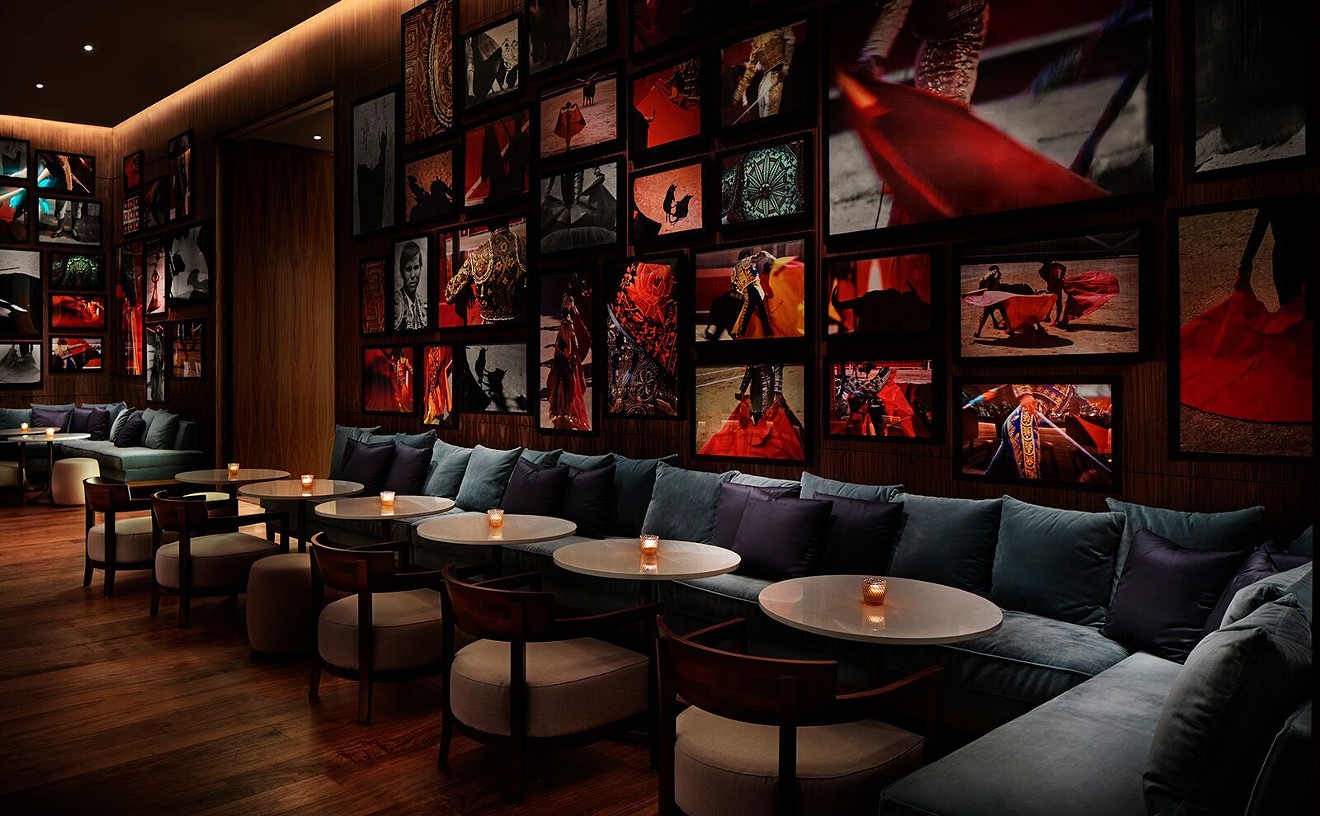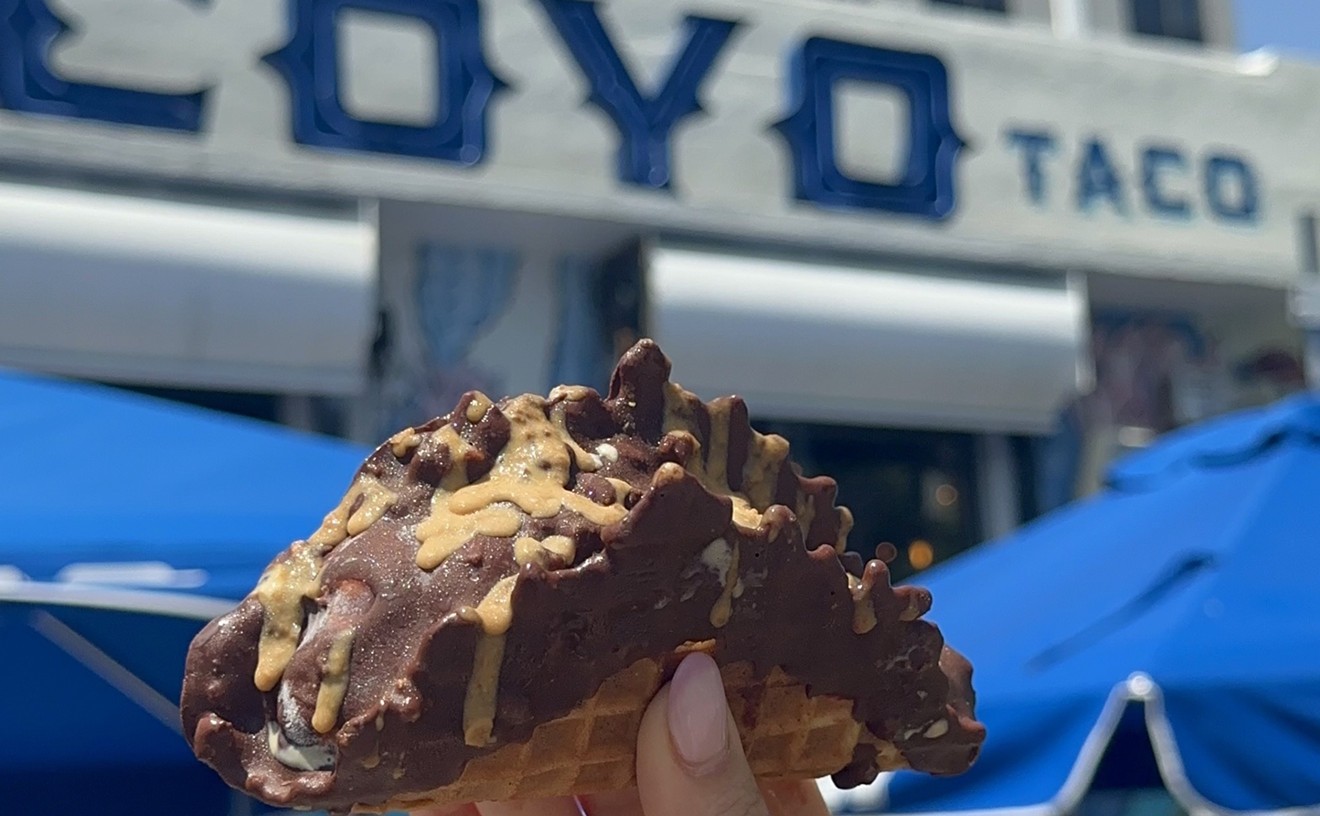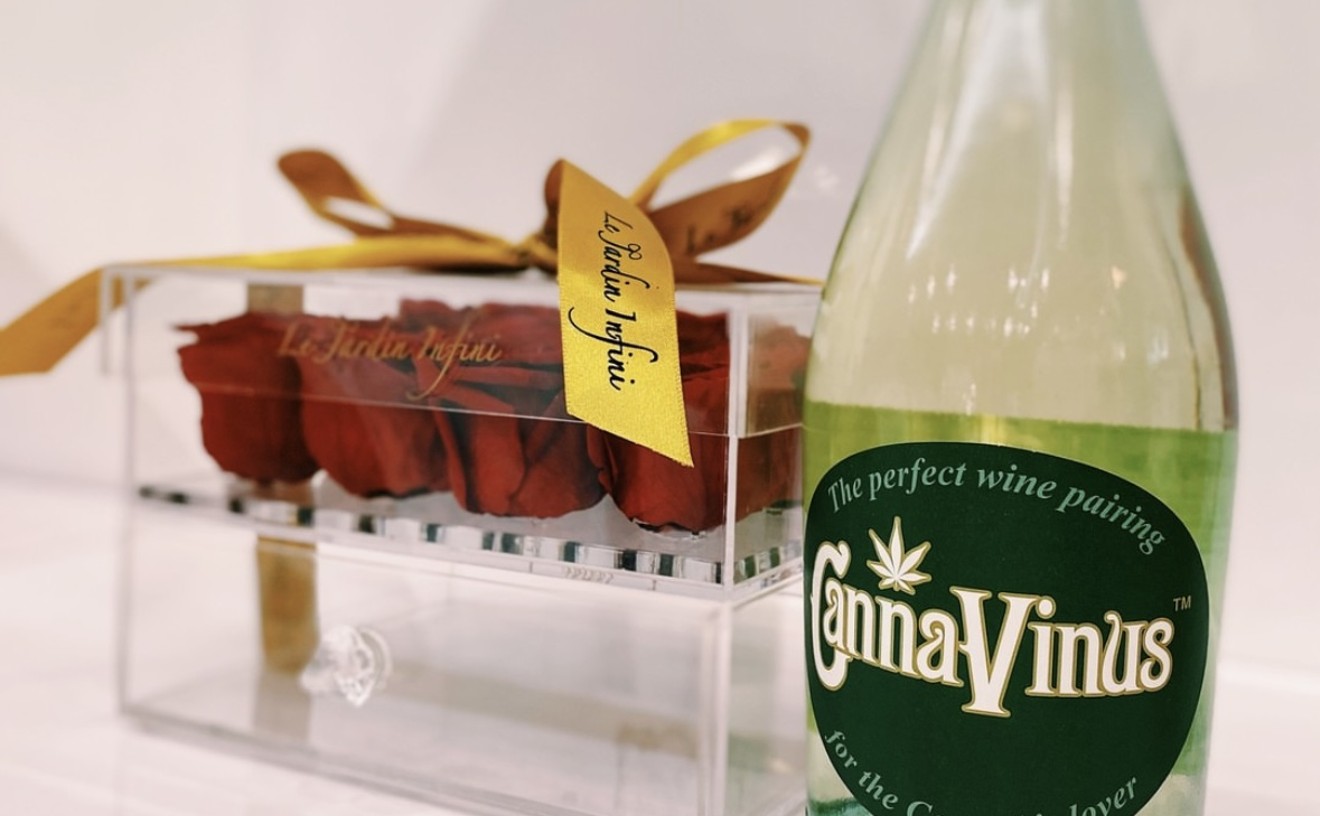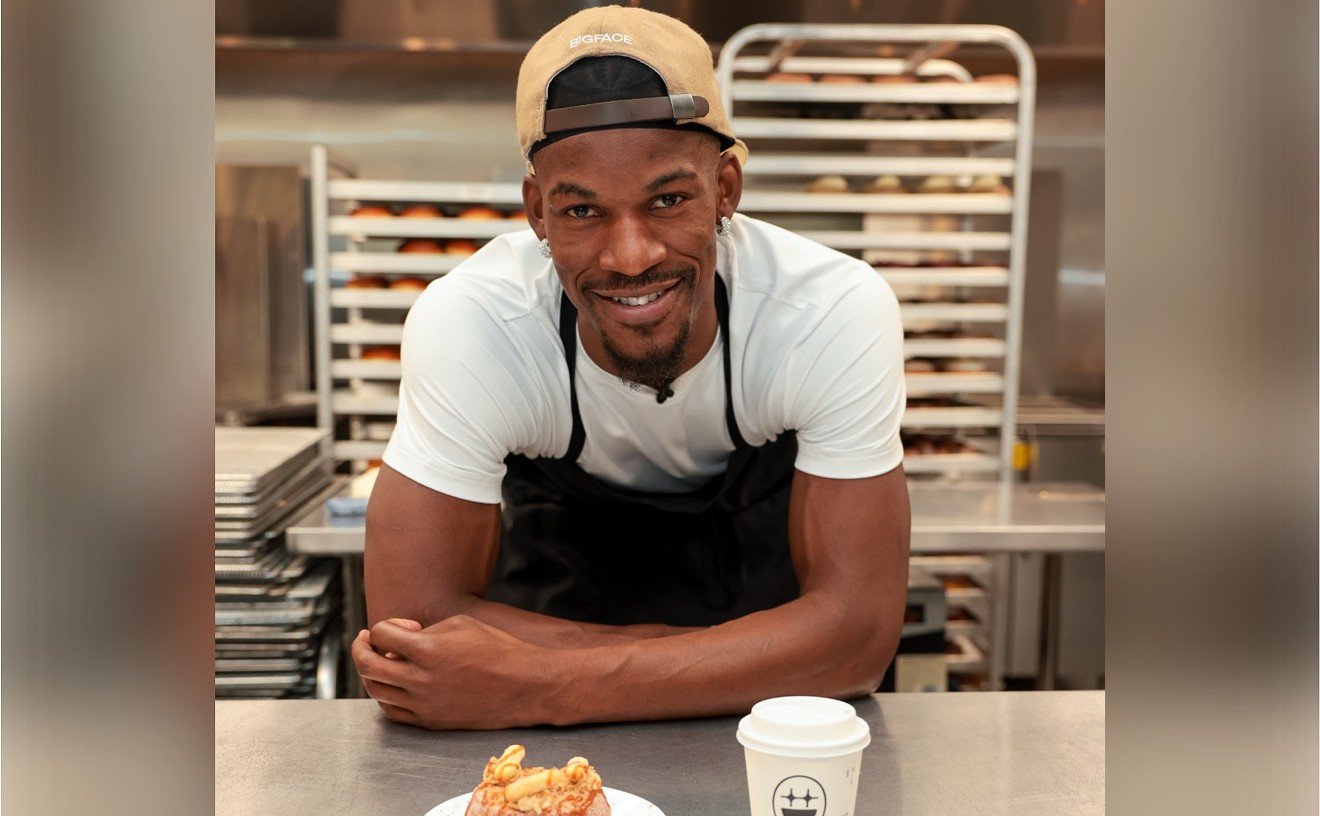Ever since Miami achieved a certain cachet in the national food mags, celebrity-oriented restaurants and chefs have been coming down from New York to launch outposts. The most successful of these, China Grill, now runs a virtual banana republic of eateries here. So attempted takeovers are nothing new.
But we've always managed to counter raids on our regional identity with homegrown celebs: Norman Van Aken, Mark Militello, Allen Susser. Originally known as the Mango Gang (or the Mango Mafia, as they later came to be called, though somewhat derisively), in the mid to late Eighties these chefs revolutionized local cookery and collectively created a vibe called New World cuisine. And they weren't content to be overworked cooks for others. Like Matsuhisa and Vongerichten, all three eventually opened their own eponymous restaurants and launched a tidal wave of Caribbean-infused gastronomy so potent the nation had no choice but to take notice. Consider that each chef has been awarded, among many others, the highest honor in the biz: the James Beard Award.
Perhaps inspired by the budding interest in our bizarre little city, several other chefs came to take up residence in the early Nineties, with one goal in mind: to open their own restaurants. Robbin Haas began as executive chef at the Colony Bistro, took partnership interests in Bang and Bex, and now has a piece of his latest creation Baleen. Yugoslav-born and Jama executive chef Klime Kovaceski launched his Crystal Café. Michael Schwartz, who trained under Wolfgang Puck in California, opened Nemo. Jonathan Eismann came to Eastern Time to introduce us to Pacific Time. Jan Jorgensen and long-time resident Soren Bredahl teamed up to form Two Chefs. Cindy Hutson and Delius Shirley gave us Norma's on the Beach before moving on to Ortanique on the Mile. None of these men and women has a strict New World philosophy, but each one's fare undoubtedly has been influenced by Miami's tropical and multiethnic environment.
That adds up to eleven chef-proprietors, whose restaurants (with the exception of Baleen, Ortanique, and Mark's South Beach) are all at least five years old. And since eateries age like dogs, that's about 35 years in terms of public interest. In other words the restaurants have been around long enough for us to deposit them in our culinary consciousness, and to dig them out and rattle them off whenever someone mentions Miami. The city's food media, the national journalists, and the dining public now consider these chefs irrefutable hometown boys and girls who not only work here but have a personal stake in the region's economy.
So the problem lies not with this first and second generation of chef-proprietors. It lies with the third. To put it bluntly, hardly anyone has come out of these noted kitchens and opened, to either local or nationwide acclaim, an innovative restaurant.
Yes, many of the chef-proprietors have “placed” their people in high-profile positions or been on the hiring end. Van Aken guided his former executive chef Rob Boone to his current post at Bambú. Eismann found Frank Randazzo, who now strikes Argentine gold at the Gaucho Room, and Frank Jeannetti, who later teamed up with Schwartz at Nemo (and has since left and is now at the Biltmore Hotel). Hutson and Shirley brought Mary Rohan, a chef I've been watching for years as she developed her talents, into the Ortanique organization.
But it still appears that for the most part, while our most beloved chef-proprietors are being proper mentors, they're not training people to go out there and be the competition we need to perpetuate our gastronomic identity. Or are they? Klime Kovaceski is inordinately proud of one of his former chefs, Shyqyri Trotlini, who recently opened Mario's Pizza in North Miami Beach. Not exactly a landmark restaurant, but still, Kovaceski feels good about his ex-employee's potential. “If you work here,” he says, “you're not going to know how to be an executive chef in a high-end hotel. But you'll know how to be nice to the man who fixes the refrigeration.” In short he deliberately advises his staff on how to be responsible businessmen. Where they take his edicts afterwards is up to them; one of his former chefs is now a cook in a correctional facility.
Van Aken agrees with Kovaceski's philosophy. “We have an old-fashioned model here [at Norman's]. We train our people about seasonal and regional cooking. And our promise is that you work here for two to three years, and the pedigree you come out with will boost your career.”
But it won't necessarily enable you to open your own place. For one thing, the world -- both culinary and otherwise -- has changed. “The generation coming up doesn't seem to have the idealism you need to get started,” Van Aken explains. “They've grown up in a more hostile world than we did, and so the safer route [cooking for hotels or large corporations] is more appealing.” His point is clear: When you can get gunned down by a violent schoolmate or colleague any day of the week, why take unnecessary risks with something you can control, like your career? Plus, Van Aken adds, “it is extraordinarily hard to get the financing these days. You need half a million to get started, and that's low-balling it.”
Allen Susser concurs. “It's true we don't have the next generation chef-proprietors. But to open the type of restaurant that would make an impact, you need really deep pockets. The people coming up [through the local kitchens] are wonderfully talented. But those who would invest in them are looking at stocks instead of restaurants. And now, with the market the way it is, down the first six months of the year, investors are even more cautious.”
Like Van Aken, Allen's own chefs haven't yet been successful in launching individual eateries. Even the most promising one, Kim Andriola, who worked for Susser for seven years, went to Mark's South Beach as executive chef instead of scouting a location for himself. “I know owning his own restaurant is a dream for him,” Susser shrugs. “I still think it's in the cards for him.”
“I do want to open my own restaurant,” Andriola replies. “But I thought it best to see how the big guys do it first. I wanted to associate with the well-known chefs: Allen, Mark, Norman. I put so much time in with Allen, but I wasn't done learning as a chef. So I came to Mark.”
Andriola candidly admits, too, that starting up a restaurant involves risk, especially when you're considering something glamorous. It's a tougher industry these days, with everyone vying for the same fine diners -- and the same investors. “You do come across [investors] in venues like these,” he offers. “I had some opportunities in Allen's. But I might want to do something a little quieter than a Mark's or a Norman's. And I just wasn't ready yet.”
Kris Wessel, one locally known Militello grad, seems to have, in Andriola's words, “built up relationships with money backers.” Wessel, chef de cuisine at the original Mark's Place, recently opened his scenic new bistro Liaison on South Beach's Española Way. Apparently he's also learned well his lessons from Militello: Everything that comes out of the fusion kitchen at Liaison is handmade, including breads, cheeses, and ice creams. And Wessel is growing his own herbs on the property.
Indeed Militello's kitchens seem to be the only chef-proprietor breeding grounds these days. Mark's Place also spawned Michelle Bernstein, chef-owner of The Strand, who worked with Militello for five years. And two of Militello's former Mark's Las Olas employees now own a string of eateries in Broward, including the highly regarded Himmarshee Bar & Grill in downtown Fort Lauderdale.
Even if our promising talents do find the money, however, they don't necessarily latch on to the location. Johnny Vinczencz had himself a deep-pocket partner. But after searching for a year for an adequate spot, he gave up and returned to Astor Place as executive chef. Jake Klein, ex-chef-proprietor of Jada, had his sights set on a place in Coral Gables, but fell out with his proposed partner; the two are now sparring over who gets the location. So the future of Klein's restaurant, originally projected to open this past April, currently is unknown.
Finally, Van Aken comments, Generation Chef is being seduced -- by people like me, apparently. “These days, young chefs are mesmerized by fame and whether or not they're in the papers. They think they're not succeeding if they're not in Food Arts this week,” he notes. “But the process still needs to be gone through. I cooked in Florida for twenty years before finding investors. I was lucky that there were no magazines or TV's Food Network. When you're communing with a swordfish, your illusions [of fame] are very few.”
So perhaps chefs like Andriola and Rohan are on the right track after all -- the one called paying your dues. But without a little risk, there is no benefit. It leaves us ripe for folks like Matsuhisa to come in and offer our culinary wiz kids positions in their famous kitchens, jobs with almost guaranteed publicity that they will find harder and harder to refuse. Should Miami just throw in the dish towel now and rename itself Orlando or Las Vegas?
Nah, scoffs Van Aken. For one thing we're not alone in our dilemma. “Look at Los Angeles,” he advises. “The restaurant scene there is being dominated by the same names as it was in the Eighties. I admit it's enervating to see [our scene] not changing. I'd love to be yoked with the newer names -- if there were some. But celebrity chefs coming down to Miami to open outposts is nothing new.” He ticks off some familiar top toques -- Charlie Palmer, Larry Forgione, Kerry Simon (working in Vegas these days, incidentally) -- who tried and failed to storm the New World castle. But while it's conceivable that Norman's may be unshakable, it's also true that we have never before been so vulnerable to attack.










